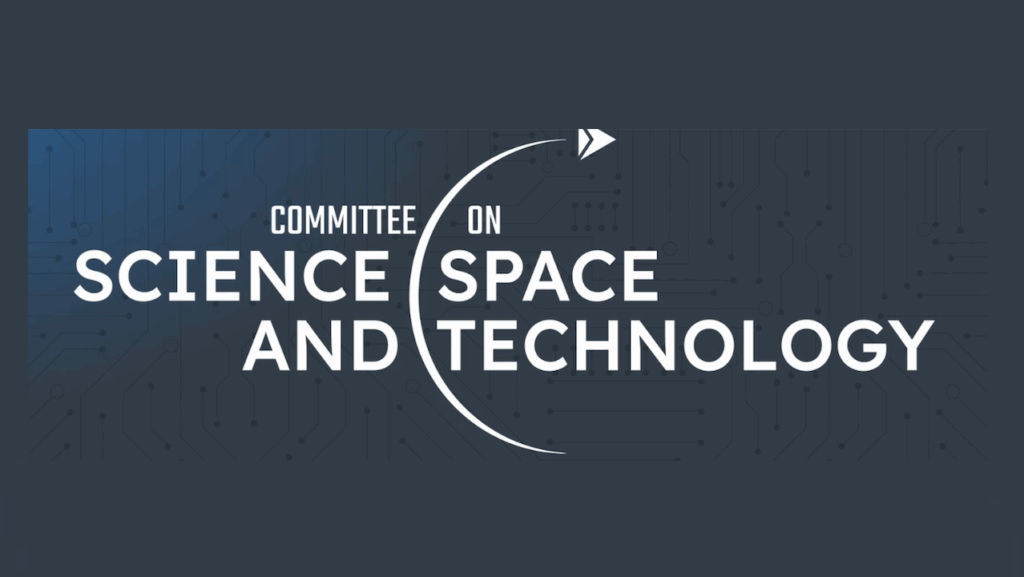Senators Reject Trump Push To Cut NASA Education

Senators to Trump Administration; Do Not Hurt Workforce By Cutting NASA Education Funding, US Senate
“Today, U.S. Senators Tim Kaine (D-VA) and Tammy Baldwin (D-WI), co-chairs of the Senate Career and Technical Education (CTE) Caucus, are leading a group of 32 Senators in a letter urging the Senate Appropriations Committee to support NASA’s Office of Education in the coming fiscal year. President Trump’s budget proposal for Fiscal Year 2018 (FY18) would eliminate NASA’s Office of Education, which works to inspire and educate students across the country to pursue careers in science, technology, engineering, and math (STEM). In Virginia, funding from NASA’s Office of Education enables students to explore careers in STEM-related fields at NASA Langley, NASA Wallops, and in Virginia’s robust technology sector.”









I wonder what this is really all about? Who put the bug in the ear of Trump for NASA to stop supporting education? Who put the bug in the ear of Obama to do the same?
Very little money goes into NASA education. Especially now since they cut education from several hundred million to about $100 million under Obama. Remember that the Smithsonian, Department of Education and National Academies were going to do space education with the money NASA wasn’t going to get. However, none of those three esteemed agencies actually produce any serious educational products, so they were each going to have to start up new organizations. So they already cut 3/4 of the NASA funding and did not start any new groups in those other agencies.
Then, human space flight, which is a serious part of the NASA budget, doesn’t support education anyway. They say things like the HAM Radio and crew members talking from the ISS to a school once every few weeks is worth billions and therefore they don’t contribute anymore support than that.
NASA is trying to ‘reach’ the populace. Its tough when there are no Shuttle launches and the only big shows of flame occur on the other side of the world. Yet they have a captive audience of tens of millions of people in the schools and the kids and teachers always made great use of those NASA Facts, Educational Publications, NASA Films, NASA Vans bringing displays, and NASA Speakers back in the twentieth century. NASA hasn’t supported those kinds of things since the twentieth century. Sorry but a minute long video every so often on your smart phone does not convey the same kind of information.
1. Bad advice was given to both Obama and Trump
2. Education supporters did not get a seat at the table
3. You cut the things that the fewest people will complain about.
4. Maybe #3 will change this time.
Sounds like the idea to cut education came from the NASA management. I no longer call them leadership, since they have not shown leadership in ages, and this is one more example. Besides the fact they have no plan and no strategy for what to do, they appear just to be stupid; inept.
5. On planetary missions, they often assume the scientists will do it on their own and for free. Why pay when you don’t have to?
Science Mission Directorate has, in the past-I am not sure about this year-taken 1% of every planetary mission’s budget and put it into educational media, teacher professional development, and other education projects.
The project offices frequently hire university students studying science education or communications, and often the students have subsequently been offered positions with NASA, JPL, or the project team. It is by the way, one of the problems with NASA education, in that instead of having a set of materials focused on Mars, or the Universe, or the Solar System, every project has their own educational materials so there might be some for Curiosity and more for Opportunity, and Hubble and Kepler and Voyager….The decentralization means that usually the projects have not coordinated well with one another. There are redundancies, gaps and the content is sometimes difficult to find or identify what is current and what is based on old missions.
Scientists usually do some guest speaker gigs, but not many if they are actively doing science and writing their results-they don’t have time. Also the scientists rarely are producing the materials teachers need to teach in the classroom.
I wonder if we have the right mindset for education programs. I think some programs excite people but there is never followup funding or certain things just doesn’t make sense or we really will not see the benefits until years later when someone at a startup said they were inspired after visiting a NASA center during a big event, i.e. Moonfest in 2009.
Now that it might be saved, work on improving it, making it more credible (well made instructional materials) and efficient and useful to all students. Time in this country to make improvements, not cancellations.
How come my Texas senators aren’t on this list? Probably towing the party line.
The INSPIRE Act President Trump signed February required NASA to submit a report in 90 days on how it would implement an agency wide mentoring strategy for STEM education. Do you know if the report was delivered. Mentoring has been found to be the most effect educational strategy for minorities/women to move into successful STEM careers in organizations, far more then the PR eye candy that NASA calls education outreach.
Education at the centers is fantastic with many dedicated people. Grantees give NASA $10 value for every dollar spent. HQ, well unless there has been a huge change in the last five years . . . .
I wonder which centers those are? I don’t think our center has an education function or education products; not even certain there is an education manager anymore.
Goddard https://www.nasa.gov/center…
Marshall
https://www.nasa.gov/office…
Johnson
https://www.nasa.gov/office…
Ames
https://www.nasa.gov/center…
Kennedy
https://www.nasa.gov/office…
and so on
What exactly is the justification for NASA dollars being used for education?
Who is the proper target for this ‘outreach’? How are these targets prioritized? Does NASA have business producing targeted lesson plans, say, and supporting documents that classroom teachers can use for fifth-grade science instruction?
Like any citizen, I’d wish government policies congruent were with my own. As King, I’d help fellow citizens appreciate the Agency as I do, to learn about those driven scientists and engineers, to appreciate the stunning work products that result from science. I would bombard our grade schools and high schools with NASA materials. I’d have students regularly meeting with NASA staff, researchers, even with PI’s.
What about agencies that are not space related? FDA education? Or FDIC education? Or any other agency? What is the justification for outreach from, for instance, the Office of Management and Budget?
What makes NASA special?
That’s an interesting point. For NASA, the intent seems to be promoting science and engineering, so FDIC or OMB aren’t too relevant. (If the government decides to promote business education, that might be a different matter.) But I see your point. The FDA, NIST, EPA, NSF, etc. all do scientific work. If NASA is supposed to promote science education, I can’t see why they shouldn’t be doing so as well. Hell, the Army Corp of Engineers should probably get to play as well. But that would scatter the funding and resources. I’m not sure what the best way to manage this is, especially since I don’t think the goals are clearly defined. (Is promoting business education something the government wants?) I could imagine a multi-agency program headed by the Department of Education and involving all the relevant agencies, departments and administrations. Possibly with coordination through the National Academies. This isn’t something which is well-organized or coordinated at the moment. But I can’t see simply zeroing out funding as the solution.
By the way, in one respect, NASA is not the agency which promotes education. For research grants, proposers and reviewers are specifically told that plans to fund students are not an automatic plus. If it helps you get the work done at a reasonable cost, that’s a plus. But simply funding students for its own sake is not considered a strength. This is specifically contrasted to proposals to the NSF, where funding students for the sake of funding students is considered a strength in a proposal.